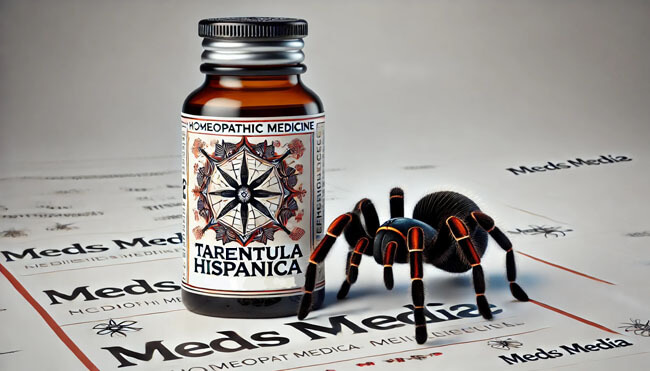
Aconitum Napellus, commonly known as Monkshood or Aconite, is a prominent remedy in homeopathy, often referred to in acute cases. It is characterized by sudden, intense symptoms that reflect fear, anxiety, and a sense of impending doom. The Aconitum Napellus personality is distinctive, marked by emotional turbulence, physical restlessness, and a susceptibility to shock.
Personality Overview
The Aconitum Napellus personality is one dominated by acute responses to fear and anxiety. Individuals requiring Aconite typically exhibit extreme reactions to physical or emotional shocks, such as exposure to cold, sudden illnesses, or traumatic events. They often present with violent physical symptoms that reflect the mental state of fear and agitation. This remedy is especially useful at the onset of acute conditions, where physical and mental restlessness is pronounced.
Aconitum personalities are usually tense, both emotionally and physically. Their symptoms come on rapidly, reflecting a state of sudden, violent distress. These individuals may feel an overwhelming fear of death, sometimes predicting the exact time they will die. They are restless and exhibit great anxiety, often tossing about in bed or pacing, unable to find comfort.
Mental and Emotional Characteristics
The hallmark of the Aconite mental state is intense fear and anxiety. This fear can arise from seemingly minor ailments and often leads the individual to believe that death is imminent. The emotional state of an Aconite personality is one of panic, often precipitated by exposure to cold or a traumatic event.
Key mental and emotional features include:
- Fear of death: Aconite individuals frequently express a premonition of death, sometimes predicting the exact time they believe they will die.
- Panic attacks: Sudden onset of extreme fear and anxiety, often leading to physical symptoms such as palpitations, breathlessness, and profuse sweating.
- Restlessness: They are mentally and physically unable to relax, constantly tossing and turning or pacing.
- Sensitivity to noise: Aconite personalities can become overwhelmed by sounds, especially music, which can cause them great distress.
- Delirium: In more severe cases, the individual may become delirious, raving with fear and often imagining things that are not real.
These emotional disturbances often accompany physical complaints, and the individual’s emotional state can exacerbate the severity of their symptoms.
Physical Characteristics
The physical profile of an Aconitum Napellus personality is one of sudden, acute distress. Symptoms appear rapidly, often as a result of exposure to cold, dry weather or intense emotional shock. The physical characteristics associated with this remedy often mirror the mental state of restlessness and fear.
Common physical traits include:
- Sudden fever: Aconite is frequently indicated in the early stages of fever, especially when accompanied by restlessness and anxiety.
- Tingling and numbness: Individuals may experience sensations of tingling or numbness, especially in the extremities.
- Pulsating headaches: They often complain of severe, throbbing headaches, sometimes described as a sensation of the brain boiling.
- Cold sensations: Despite the presence of fever, the individual often feels cold, especially in the extremities. Cold waves may pass through the body, alternating with heat.
- Respiratory distress: Shortness of breath, coughing, and a sense of oppression in the chest are common in Aconite patients. This is particularly evident in cases of sudden-onset respiratory infections or anxiety-driven breathlessness.
- Sensitive skin: The skin may be red, hot, and swollen. Individuals may experience itching or burning sensations, often relieved by external warmth.
Behavioral Patterns
The behavioral patterns of an Aconitum Napellus individual are marked by agitation and restlessness. They often display a hypersensitive reaction to both their internal sensations and their external environment. The following behaviors are typical:
- Restless movements: These individuals are unable to sit still, frequently shifting positions, tossing in bed, or pacing about anxiously.
- Fear-driven behaviors: The individual may constantly seek reassurance, express fears about dying, and display a heightened sensitivity to their surroundings.
- Aversion to touch: Aconite personalities often dislike being touched, associating physical contact with discomfort.
- Acute reactions to stress: They may react intensely to loud noises, bright lights, and sudden environmental changes, particularly cold drafts or shocks.
Associated Diseases
Aconitum Napellus is most commonly indicated in acute illnesses and conditions that arise suddenly, often as a result of exposure to cold or after a traumatic event. Some conditions commonly treated with Aconite include:
- Sudden fevers: High, sudden-onset fevers, especially when accompanied by restlessness, anxiety, and cold sensations.
- Respiratory conditions: Croup, asthma, and bronchitis that arise suddenly, often due to cold weather exposure.
- Neurological complaints: Headaches, dizziness, and vertigo, particularly when aggravated by sudden movement or shock.
- Influenza and colds: Especially in the early stages, when accompanied by anxiety, restlessness, and intense thirst.
- Heart conditions: Palpitations, tachycardia, and chest pains with a sense of impending doom, often linked to anxiety or panic attacks.
Miasmatic Personality of Aconitum Napellus
Aconitum Napellus is often associated with the Psoric miasm, which is characterized by hypersensitivity and overreactivity to stress. Individuals with a Psoric constitution are prone to anxiety, insecurity, and fear of the unknown. This fits well with the Aconite personality, which exhibits sudden, violent reactions to fear and stress, as well as intense physical and emotional overactivity.
The miasmatic traits of Aconite can also extend into acute, sudden disturbances in the body’s vital force, reflecting the Psoric predisposition to overreaction in times of crisis. This miasmatic influence helps explain why Aconite is primarily used in the early stages of acute illness, where the symptoms are violent but functional, and no deep-seated pathology has yet developed.
Conclusion
The Aconitum Napellus personality is dominated by extreme sensitivity to fear and anxiety, manifesting in both the mind and body. The sudden, violent onset of symptoms—whether physical or emotional—defines this remedy, making it an invaluable tool in acute cases, especially those triggered by exposure to cold or emotional shock. Understanding the mental and physical characteristics, as well as the behavioral patterns, helps homeopaths effectively prescribe Aconite in cases of acute, intense distress.
In essence, Aconitum Napellus offers relief to individuals gripped by sudden fear and shock, restoring calm in situations of great turmoil.
Why Meds Media guides are different
We focus on clear, practical explanations of homeopathic and natural health topics so you can understand remedies, symptoms, and lifestyle changes in simple language.
Meds Media is an educational resource only. Always consult a qualified doctor or homeopathic practitioner before starting, stopping, or changing any treatment.
Similar Posts You may also like
Zincum Picricum Homeopathic Medicine & Personality | Uses, Benefits & Indications
Zincum Phosphoricum Homeopathic Medicine & Personality | Uses, Benefits & Indications
Zincum Iodatum Homeopathic Medicine & Personality | Uses, Benefits & Indications
Zincum Bromatum Homeopathic Medicine & Personality | Uses, Benefits & Indications
Zea Homeopathic Medicine & Personality | Uses, Benefits & Indications
Zincum Aceticum Homeopathic Medicine & Personality | Uses, Benefits & Indications
Zincum Cyanatum Homeopathic Medicine & Personality | Uses, Benefits & Indications
Zincum Muriaticum Homeopathic Medicine & Personality | Uses, Benefits & Indications
Zincum Oxydatum Homeopathic Medicine & Personality | Uses, Benefits & Indications
Zincum Sulphuricum Homeopathic Medicine & Personality | Uses, Benefits & Indications

Phosphorus Homeopathic Medicine & Personality | Uses, Benefits & Indications
Causticum Homeopathic Medicine & Personality | Uses, Benefits & Indications

Veratrum Viride Homeopathic Medicine & Personality | Uses, Benefits & Indications

Spongia Tosta Homeopathic Medicine & Personality | Uses, Benefits & Indications

Zingiber Officinale Homeopathic Medicine & Personality | Uses, Benefits & Indications

Sulphur Homeopathic Medicine & Personality | Uses, Benefits & Indications

Tarentula Hispanica Homeopathic Medicine & Personality | Uses, Benefits & Indications


